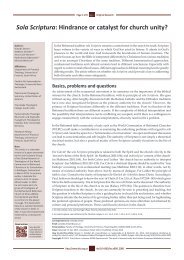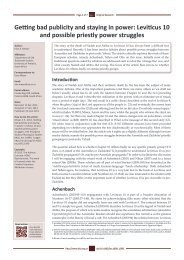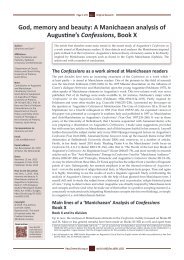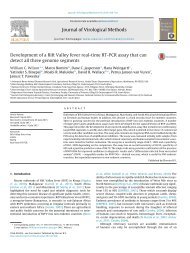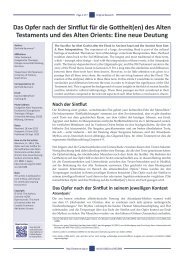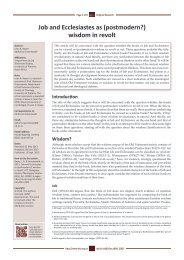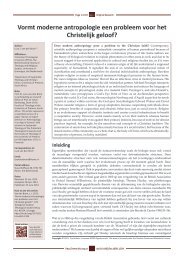View/Open - Repository.up.ac.za - University of Pretoria
View/Open - Repository.up.ac.za - University of Pretoria
View/Open - Repository.up.ac.za - University of Pretoria
Create successful ePaper yourself
Turn your PDF publications into a flip-book with our unique Google optimized e-Paper software.
LATENT DEFECTS<br />
THE LAW OF PURCHASE AND SALE<br />
1067<br />
In Odendaal v Ferraris [2008] 4 All SA 529 (SCA), the respondent<br />
bought a dwelling from the appellant. The dwelling, inter<br />
alia, had defects (a collapsed staircase railing, water-damaged<br />
ceilings, a covered sewer manhole in the middle <strong>of</strong> the laundry, a<br />
faulty j<strong>ac</strong>uzzi, leaking ro<strong>of</strong>s, and wood panels infested with bore<br />
beetle) and was built on constructions that did not comply with<br />
building regulations. To enable him to address these problems,<br />
the respondent instructed the bank to delay transfer. The appellant<br />
then sought to have the respondent evicted, but failed in the<br />
court below.<br />
On appeal, the question was whether the failure to obtain<br />
statutory approval to build on such constructions constituted a<br />
latent defect. And, if so, whether a voetstoots clause protected a<br />
seller from liability.<br />
In Van Nieuwkerk v McCrae 2007 (5) SA 21 (W), it was held that<br />
with a sale <strong>of</strong> residential property, a purchaser was entitled to<br />
assume that improvements were erected in compliance with all<br />
statutory requirements, so that the merx could be used fully. As<br />
this assumption is implied as a matter <strong>of</strong> law, it is regarded as a<br />
t<strong>ac</strong>it term. However, relying on Ornelas v Andrew’s Café 1980 (1)<br />
SA 378 (W), Goldblatt J held that a seller could not in these<br />
circumstances rely on a voetstoots clause, as it excludes liability<br />
only for latent defects <strong>of</strong> a physical nature. Hence, a voetstoots<br />
clause does not apply to the l<strong>ac</strong>k <strong>of</strong> certain qualities or char<strong>ac</strong>teristics<br />
(such as statutory compliance) <strong>of</strong> the merx on which the<br />
parties have agreed.<br />
In Ornelas, property was sold as a going concern for purposes<br />
<strong>of</strong> a café and restaurant. After conclusion <strong>of</strong> the sale, the<br />
purchasers became aware that the business was operated<br />
without a licence and that they were unable to obtain one. In an<br />
<strong>ac</strong>tion to cancel the agreement, the seller sought to rely on a<br />
voetstoots clause. Nestadt J confined the voetstoots clause to<br />
physical or visible qualities <strong>of</strong> the merx. As the absence <strong>of</strong> a<br />
licence (a statutory requirement) is not a physical or visible<br />
quality, it is also not a (latent) defect. The solution to the licence<br />
problem lies in an implied contr<strong>ac</strong>tual term and not a voetstoots<br />
clause.<br />
In Odendaal, C<strong>ac</strong>halia JA distinguished Ornelas from Van<br />
Nieuwkerk and Odendaal. InOrnelas, the merx was unfit for the<br />
purpose for which it was purchased because <strong>of</strong> the absence <strong>of</strong> a<br />
trading licence. By contrast, the merces in Van Nieuwkerk and



